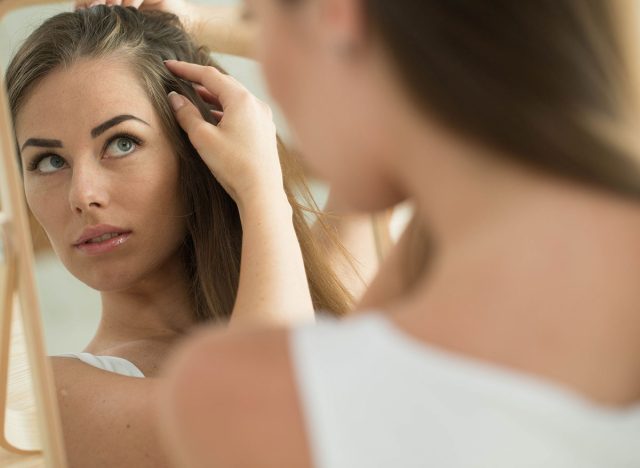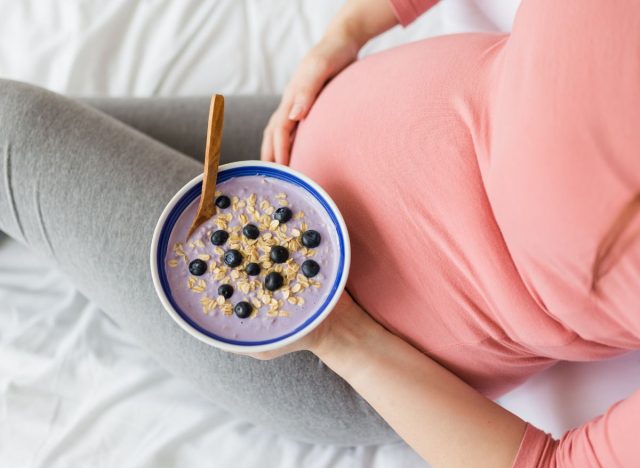These days, everyone is talking about obtaining enough protein. There are tons of people on social networks documenting their quest to achieve their protein goals and boast the benefits of eating more protein. But what are the real signs that you do not get enough of this macronutrient?
Amy Goodson MS, RD, LD, CSSD, a dietitian and consultant recorded in the Dallas-Fort Worth region, emphasizing overall health, well-being and sports nutrition indicate that many people meet their minimum protein needs (RDA-recommended dietetic allocation), most people can benefit from a higher diet. “Some groups like older adults, athletes, those who recover from illness or injury and people trying to lose weight certainly have higher protein needs,” she said. Goodson explains that protein needs vary depending on the level of activity, age, body weight and health objectives, and that not obtaining enough can have an impact on the function of your body and your body. Read the rest for everything you need to know, including 7 signs that you don’t get enough protein every day.
Proteins help you feel full

Protein also plays an important role in helping people feel full. “People who consume higher protein diets (about 30% of protein’s daily calories) feel more satisfied, which can prevent insane snacks and overeating throughout the day,” she said. This means consuming fewer calories overall. “In addition, proteins play an important role in the construction of muscle muscles and supplying muscles recovery after physical activity. A balanced diet that includes high -quality proteins and other nutrients rich in nutrients is an essential component for overall strength and health.”
7 signs, you may not get enough protein


Here are 7 signs that you may not get enough protein:
1. weakness or fatigue. A lack of protein can make you lose muscle mass, which can leave you weak and tired.
2. slow recovery of the exercise. The protein gives your body the amino acids it needs to rebuild. Without that, it is more difficult for the body to repair muscle tissue which is damaged during the exercise.
3. Lighting hair or brittle nails. When your body cannot make enough protein such as keratin, the result can be ridges in your nails, lightened hair and even dry and scaly skin.
4. Frequent disease. Without enough protein, your immune system can be compromised, which means that it is more difficult to fight viruses and bacteria.
5. Constant hunger. Proteins make you feel full so without enough in your diet, you may not feel satisfied even after eating.
6. Healing of slow wounds. Your body needs protein to coagulate your blood and produce enough collagen to cure injury. The result could be that it takes more time for cuts, scratches and other injuries to improve.
7. Swelling. Swelling in your ends (also known as edema) can be a sign of enough protein because the proteins circulating in your blood help to prevent the liquid from accumulating.
Recorded dietitian nutritionist Lauren ManakerMS, RDN, LDN, CLEC, CPT, says it is important to note that these symptoms could also have other causes, so if you are concerned, it is preferable to consult a health professional.
Start the day with proteins / slideitle]


If you are ready to add more protein to your diet, Goodson recommends starting the day with proteins. “Think of the perfect Greek yogurt with whole berries and granola, eggs and oat flour, or a protein smoothie based on milk, yogurt and fruit,” she said. “For snacks, opt for rope cheese, roasted edamame or jerky beef. And meals, aim to fill a quarter of your plate with lean proteins such as lean beef, fish or poultry. The goal is to consume about 30 grams of protein at meals and at least 10 grams of protein with snacks.”
How much protein is the best? / Slideitle]


So how many proteins should you get every day? “A general directive consists in targeting 0.8 gram of protein per kilogram of body weight if you are an average adult with a sedentary lifestyle,” explains Manaker. To find your basic line, simply divide your weight into pounds of 2.2 to convert it to kilograms, then multiply by 0.8. “However, your protein needs can vary depending on factors such as age, level of activity and health objectives,” she said. “For example, athletes, pregnant people or those who try to develop muscles may require more protein to support their bodies.” If you are not sure of your specific needs, consulting a dietitian can provide tailor -made advice to match your lifestyle.
Ronnie Koenig
Ronnie Koenig wrote on food, drinks, travel and culture for the New York Times today, the Atlantic and many others. Learn more about Ronnie
#Signs #Youre #Protein #Day




